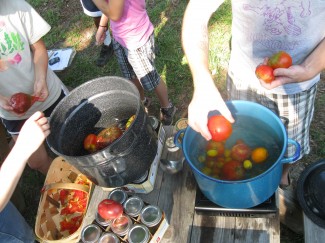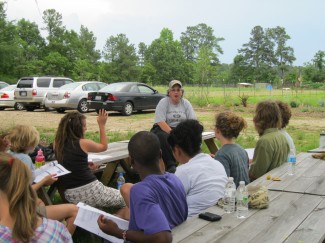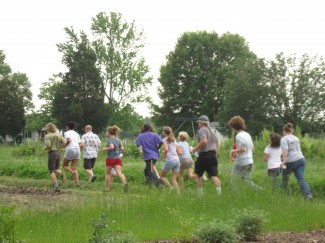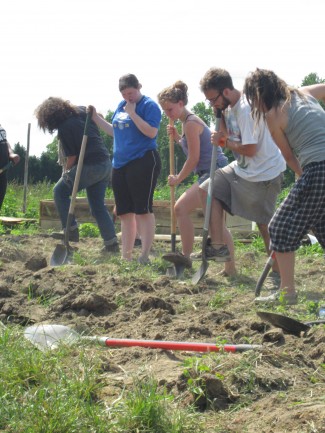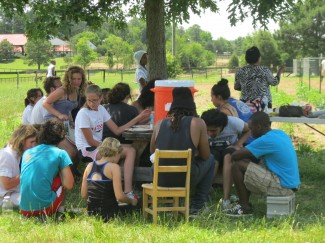IFFS Farm Educator, Sun Butler, along with IFFS Co-Founder and Executive Director, Jill Staton Bullard, and IFFS Board Chair, Ardie Gregory, spent June 3-13 in Cuba where they participated in a sustainable agriculture and development conference. They travelled with 23 people from Witness for Peace--an organization dedicated to changing policies that contribute to poverty & oppression in Latin America and the Caribbean.
Due to the US embargo on Cuba, there is much that we don't know about that country. For instance, did you know that Cuba used to import 80% of its people's food? With the fall of the Soviet Union in the 1990s, they were faced with dramatic shortages--the average Cuban citizen lost between 20 and 30 pounds as a result! Without food, everyone had to learn to grow food in every single place they could. Now they have turned the tables, and produce 80% of their own food--which is why IFFS traveled there to learn about their organic & sustainable practices. These include pest control through use of beneficial insects and co-planting, and creation of fertilizer from manure and compost.
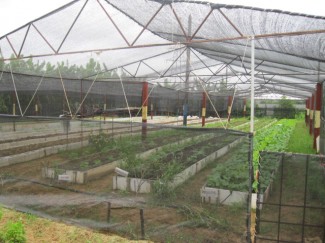
Growing Food In Tight Spaces
The group studied every kind of urban food production: women-owned farms that raise cows to provide milk to schools, neighborhood co-operatives that grow vegetables for food and worms for soil. They climbed up to rooftop gardens, and saw an urban garden that raises both tropical fish for decorative pets and larger fish, such as tilapia, for food. They saw cattle grazing on the grass in highway cloverleafs and corn growing in medians.
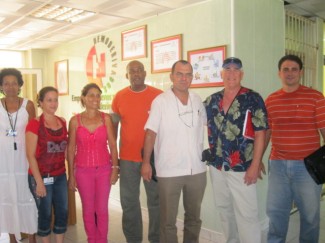
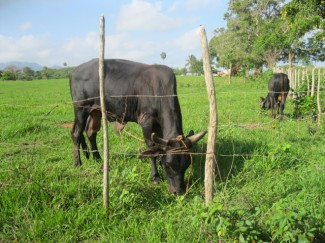
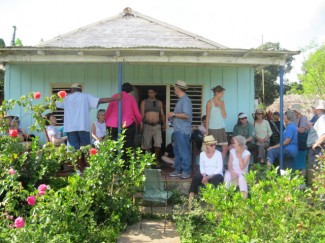

Sun says that he has travelled throughout the Caribbean, and was interested to discover that the Cubans have a higher standard of living, a higher literacy rate, and better medical care than their neighbors. Most important to him, though, is learning from the Cubans how to get by on much less oil & fossil fuels.

Lessons for NC
Recently, Jill and Sun were interviewed on NC Policy Watch about food insecurity in North Carolina and about some of IFFS’s newest innovative solutions to grow a healthy local food system: the Young Farmer Training Program (YFTP) and Urban Agriculture training. Jill and Sun connected what they learned on their recent trip to Cuba back to solutions being developed by IFFS here in North Carolina. Check the full interview out here or read the synopsis below.
North Carolina ranks among top 10 states for food hardship even though agriculture is a $70 billion industry for our state. We are in a similar position to Cuba before the collapse of the Soviet Block, when their main export was sugar from sugarcane. NC may be an agricultural state, but we produce only 20% of our own food. While the economy may be beginning to improve, one in four North Carolina children is still at regular risk of hunger.
Additionally, the average age of our farmers is 57, and not many kids who grow up in agricultural areas are staying home to pass the farm on to the next generation. Through our Young Farmer Training Program, funded by the USDA’s Beginning Farmer and Rancher Development Program, we’re providing hands-on technical training for the next generation of local farmers. IFFS is connecting young people to where their food comes from and making today’s youth aware of career opportunities available in local food production.
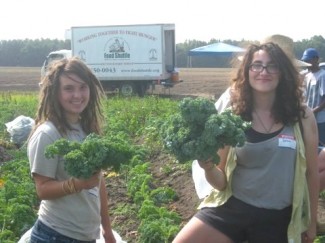
We have the ability to create a healthy local food economy. We can grow food in the same spaces Cuba does - rooftops, backyards, parkland, and open spaces, and we have a population that needs jobs and revenue. With IFFS’ YFTP and Urban Agriculture programs, we’re combining the need for jobs and revenue with the need for healthy local food. We are teaching young people how to make a living out of 5 acres producing local food for the community, fighting hunger by increasing opportunities for local food entrepreneurship and creating jobs.
IFFS has been working to end hunger in our community for over 23 years – we started by putting food on plates for people who didn’t have food, but that alone did not change the paradigm of people who were hungry. So, about 13 years ago, we started job training in culinary skills. Now we are providing workshops and job training around agricultural skills, creating revenue sources for low-wage people, and providing fresh produce for our community.
Jill says
“It is easy to fall in love with Cuba--the country is beautiful, the people are happy, healthy and productive. They were friendly to us, clearly proud of what their country has accomplished and anxious to share their learnings with us. And, let me be clear-- we went to learn. They changed because they had to; we hope to accomplish some of the same pride and food independence because we want to. I pray that we never have to change due to circumstances beyond our control as the Cuban people did. I hope we do it because we need healthier and more nutritious food. I hope we do it because we need to grow the next generation of North Carolina farmers. I hope we do it because we need to have good local foods available in the urban food deserts that plague Raleigh and Durham. I hope we can muster the will, energy and commitment to do it, and do it well.”

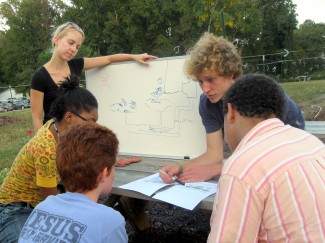








 For many of the teens (and for me), the concept of savory jams was somewhat unfamiliar. But by the end of the workshop, they couldn’t wait to try making some tasty sweet and savory combinations of their own. Canning preserves food at its peak – full of flavor and nutrients. You can still eat tasty tomatoes full of the same in-season flavor in the middle of January -- in sauces, salsas, and jams. The apprentices used several varieties of Heirloom tomatoes, all grown on the
For many of the teens (and for me), the concept of savory jams was somewhat unfamiliar. But by the end of the workshop, they couldn’t wait to try making some tasty sweet and savory combinations of their own. Canning preserves food at its peak – full of flavor and nutrients. You can still eat tasty tomatoes full of the same in-season flavor in the middle of January -- in sauces, salsas, and jams. The apprentices used several varieties of Heirloom tomatoes, all grown on the 

